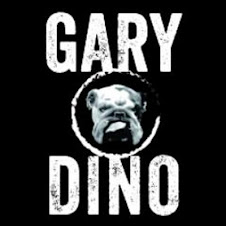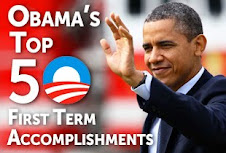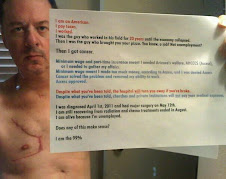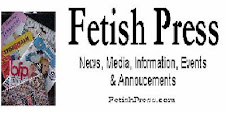Friday, October 22, 2021
Remembering Hugh Hefner by Richard Bann
REMEMBERING HUGH HEFNER
He meant so much, to so many, for so long.
“Fire...the wheel...Playboy.”
I could say that to Hef, and he would know what I meant. We could speak in shorthand. “Glad that’s all cleared up,” I would turn and say to him after the generally meaningless, nonsensical new movies we’d see Sundays at the Playboy Mansion.
There were hand gestures and signs, too, which few others understood. Like the “Shudder Club” greeting from Hef’s childhood, or the “Just the reverse” hand-swivel from Laurel & Hardy’s WRONG AGAIN. Plus also Our Gang’s “High Sign.” And Gary Cooper’s two-finger salute from WINGS. Hef used to give that one a lot. His friends got it.
Hugh Hefner had the world's most amazing life. That's all. He had it going on, in a big way, for the longest time.
Hard finding the words for this, at least not that mean as much as I would like them to, on a tough day. Anyway everyone already knows, or should know, everything about Hef, don’t they? He was a national icon in the public eye; he had no secrets, nothing to hide.
He lived large. Clearly Hef was sybarite who sought personal pleasure to the nth degree, in high style, but he was also a workaholic and an intellectual giant. A dichotomy? No. There were two sides to Hef, in more ways than one. He worked hard, he played hard, and for all to see. He always said, “My life is an open book, with illustrations.”
So in any kind of memorial, what can you say, what can you add about someone who caused a socio-sexual revolution and changed the culture? A prophet who changed the world, really. And who was so misjudged by the world, as though he had recreated his own private Sodom and Gomorrah right there in Holmby Hills.
For starters, true, the version of "Hef" most people saw was his flamboyant public persona, the one who staged wild parties with plenty of plasticized pulchritude at Hollywood’s most notorious address. This characterization was the invention of a high school-age Hugh Hefner in response to being rejected by a young lady named Betty Conklin, whom he had a crush on. He lost her to another boy. When, later, in her 60’s, 70’s, and 80’s, Betty Conklin – still Hef’s friend -- would attend all the big Playboy theme parties, adorned by hundreds of drop-dead gorgeous young girls dressed in dental floss, I’d tell her with some delight, “Look around here. You see these lovely young ladies who have obviously just patronized the Trashy Lingerie store on La Cienega? They’re all here tonight – every single one of them -- as mere surrogates for you! And why? Because Hef is still working out what happened between the two of you as teenagers.”
That always tickled her.
We carry our childhoods with his, and hidden inside the alter-ago of “Hef” was the shy teenager who had reinvented himself. Again, two sides to the man.
Few really knew him, I mean the private Hugh Hefner, that boy he kept hidden. Those of us who did were lucky. We were so lucky. We were blessed, we were privileged. We became a family. We became his family. Besides his thoughtful and generous friendship, we truly enjoyed what can only be described as a modern day Hearst Castle-San Simeon existence (home of another controversial publisher), where he was the most gracious host, a Gatsby-like host.
On the other side of “the boy who dreamed the dreams” were, as mentioned, those huge, wild, spectacular all night parties -- the Midsummer Night's Dream Party, Halloween, New Year's Eve, Valentine's Day, the Fourth of July, etc. Populated by celebrities, the hipster elite, killer Playmates and Playmate wannabes, they reflected Hef's interest in hedonism and debauchery. No question. And those parties were really something.
I remember the time I met Donald and Ivanka Trump at the Midsummer’s party, who were admitted even though they failed to pass the mandatory dress code for pajamas and lingerie. The memories now are continuous and unending.
After one particular Halloween party (with credit to Rich Correll), I said to Hef that in the entire history of mankind, there could never have been a better party, anywhere, at any time. Could there? No. Never. Where? I challenged Hef and others at the dinner table to name where and when in all of creation there could ever have been a party to rival what we had just survived – to the extent we had. Try to name one, I challenged the room. No one could. The silent response of everyone left Hef sitting there in his gunfighter black pajamas, with a big smile on his face, content to silently sip on his beloved Jack Daniels and Pepsi (never Coca Cola). I remember that day, too.
There were also the lovely, old fashioned, sentimental, nostalgic and more intimate parties during the holidays -- Christmas, Easter, Thanksgiving. Sitting at the immaculate formal dining room table on those nights, you felt as though you'd walked onto the set of an Irving Thalberg 1930’s big budget, class “A”-produced movie at M-G-M.
The inner circle of friends, the regular habitués, this family – truly, we had won the lottery of all lotteries.
Hef was always the smartest, the fastest person in the room, and I mean any room, anywhere, ever. His intellectual firepower could be staggering. He was also a man of introspection. His hearing was failing in recent times, which often made any kind of extended discussion difficult, but we used to have serious and meaningful conversations that taught me lot.
Questions about beautiful Playmates? Sure. We covered that early on. Only he, however, could use the best pick-up line of all time, “Hello, I’m Hugh Hefner.” As for the beautiful young ladies one might meet at the Playboy Mansion, well, they may look pure as the driven snow, but as Hef warned, “Some have drifted.”
Between his three shots at wedded bliss, he would quote his friend Woody Allen on the subject: “Marriage is the death of hope.” Now who could argue with that? I will say, however, and for the record, that Crystal Hefner made him a happily married man at last. I saw the evidence of this. Hef really did love Crystal.
Playmate Anne Randall has long been happily married to one of Hef’s dearest and oldest friends, Dick Stewart. “One time we were out by the pool,” she remembered, “and Hef had all these beautiful girls around, and I said to him, ‘Do you know, Hef, do you ever suspect that these girls might be after you for your money?’ And he looked at me, and he laughed, and he said, ‘I don’t care why they are after me, just so that they’re after me!’”
What else did I learn? I remember, for example, key conversations concerning evolutionary psychology, and one thing we shared was a keen interest in the central questions of life: who we are, how we got that way, what it means, and what we can do about it. In his case, as Hugh Marston Hefner, the boy who dreamed the dreams, again as mentioned, he reinvented himself as "Hef." That’s what he did about it.
Not everyone can do that successfully, however. Cary Grant films were always prized at the Playboy Mansion. When they were over, though, how many of us left the property as Cary Grant? I mean besides the great Ray Anthony, who is still successfully trading on the resemblance!
Something else we shared: Hef loved movies, and he particularly loved the time travel aspect of old movies, as I do. He reached the age of reason during the depths of the Great Depression, only to discover that he had just missed the Roaring 20’s as celebrated by Saint Paul’s F. Scott Fitzgerald in the THE GREAT GATSBY, a book which greatly influenced Hef. Having missed the party, he was always looking back to try and recreate the feeling of the era he read about as a boy, and longed to experience for himself.
Growing up in the 1930’s, besides his interest in pulp magazines, pin-up art, comic books, and detective fiction (he would reprint Arthur Conan Doyle’s “Sherlock Holmes” stories in the early days of PLAYBOY), Hef spent probably too much of his time seeing movies in the darkness of the Montclair Theater in Chicago. That was the sacred place where he dreamed the dreams and fantasies which inspired his lifestyle and lead to the creation of PLAYBOY magazine. Up there writ large on the silver screen, he saw and heard musicals that stirred him, populated by three actresses in particular – “those wonderful blondes from my childhood,” he’d say -- who he fell in love with: Toby Wing, Grace Bradley (who married William Boyd, who was “Hopalong Cassidy”), and his most favorite, Alice Faye. Eventually he would meet them all, and I was there to watch it happen each time.
In 1992, my friend Ed Hulse was the chair of our annual Cinecon film convention in Hollywood. He invited Alice Faye as a guest. I shared the news with Hef, who seldom left the sanctuary of Playboy Mansion West. But meeting Alice Faye was as special as it got for Hugh Hefner. With a full detail of armed security officers, and friend Chuck McCann, we piled into the limousine heading for the Roosevelt Hotel, where right outside one can find Hef’s star on the Hollywood Walk of Fame. Inside, Hef, at last, met Alice Faye. Each was thrilled; it was at once a love fest of mutual admiration. Hef behaved like the love struck schoolboy he still was inside. Then we screened one of her pictures for a packed house, followed by a question and answer session. “I was standing off to the side of the dais watching Hef,” Ed recalls. “He sat in the front row, hanging on her every word and looking for all the world like any other smitten fanboy.”
I would rather stick steel-pointed needles in my temples than face the fact that Hugh Hefner was just interred at the small, discreet Westwood Memorial Park Cemetery, in the crypt right next to Marilyn Monroe. She was on the cover of the famous first issue of PLAYBOY, smiling and waving. Inside, her nude pictorial against a lush background of red velvet secured success for Hef’s start-up company in 1953. Yet he never, ever met her. Not once. He ran with a lot of Playmates of course, but not that many starlets and actresses. (That was Ray Anthony’s venue. Visit YouTube and search under his name along with “Marilyn Monroe.”) Rather, it was Keith Hefner, not Hugh Hefner, who knew Marilyn. They studied acting together in New York at the Actors Studio, under the auspices of Lee Strasberg, who was artistic director there.
In 2006 Hef told THE LOS ANGELES TIMES, “I really feel in a fundamental way that American films, especially from the first half of the 20th century, are the best exponent of what we refer to as the American dream.”
The films Hef saw in his youth shaped everything he did. CASABLANCA was his favorite, and he would run it for us every year on his birthday, April 9. We all knew it by heart. Everyone in attendance would show up dressed in period costume from the picture. The festive event was celebrated as “CASABLANCA Night.”
One year, after Hef had donated yet another $1 million to the UCLA Film and Television Archive in order to support the cause of film preservation, I told Rob Stone as film curator there that a special way to thank him would be to arrange for projection of an original 35mm shimmering nitrate print on his birthday. Nothing compares with seeing a nitrate print, of a classic picture, projected on a silver screen, in a darkened theater, with a respectful audience. That’s all you want. No one anywhere today, however, without special clearance, could screen dangerous, flammable nitrate prints because they have the same chemical composition as gunpowder, and will burn under water. Nitrate fires in movie theaters are why the industry switched to safety film stock around 1950. So this event would be a once in a lifetime opportunity. We took a bus to the UCLA campus in nearby Westwood and the evening turned into a fantastic and unforgettable outing, though Rob remembers it as “one of the most nervous albeit gratifying days of my life.”
Hef felt obliged to repay the debt he believed he owed motion pictures. So, starting with the “Sherlock Holmes” feature films, he spent millions financing film preservation at UCLA, Warner Bros., etc., funding academic chairs at USC, underwriting film documentaries, and in separate eras twice paying enormous sums to restore the Hollywood sign. Who does that? Who else in Hollywood gives back that way? And that much? What an example for everyone else.
The best times at the Playboy Mansion were not the lavish parties, the big events. The best times were small gatherings for regular movie nights on Thursday, Friday, Saturday, Sunday, and Monday. Sundays we’d see brand new, and mostly forgettable movies. The rest of the time, old movies, from all genres. Chuck McCann used to sing, “Fridays are better than Sundays.” He was right. But so-called “Manly Night” on Monday was best of all.
Hef loved the romantic adventure of the Flash Gordon chapter play serials. We would see those on Mondays. He was partial to old mysteries and musicals, and any version of the “Frankenstein” saga. He liked the better Tarzan pictures (hence the Playboy Mansion was zoned as a zoo, with a wide array of exotic birds and animals all over the five-acre property). And he was partial to Mafia movies, especially THE GODFATHER, and its sequel. We looked at those almost as much as the Charlie Chan pictures: “Touch nothing….You are murderer….Thank you so much.” Twentieth Century-Fox was his favorite movie studio. Boris Karloff and Humphrey Bogart were his two favorite actors.
Those never-dull Monday night get-togethers were guys only, and precious few of them. Wonderful fellowship, every time. Grand fun. There would be dinner first, during which classy Mel Torme, “The Velvet Fog,” would break into song or entertain us with show biz patter and stories he remembered in amazing detail. What a talent.
Then we would nominate and vote on a selection of primarily Saturday Matinee-type pictures to screen that evening. Hef would conduct the voting. Poor Johnny Crawford would relentlessly nominate early sound musicals or obscure silent films that no one ever voted for. I once nominated (and we watched) the infamous TRIUMPH OF THE WILL, the greatest propaganda film of all time – except that it glorified Nazi Germany. Before the voting, and dead serious now, Ray Anthony inquired as a matter of information, “Who is the heavy in that?” As his dying wish, also dead serious, Don Adams extorted votes for a terrible Robert Mitchum movie called THE YAKUZA. Which died on the screen, and sure enough, shortly after, true to his word, so did Don.
Following dinner, but before the movie selection, Robert Culp would toast the room: “Gentlemen, gentlemen, be of good cheer; for they are out there, and we are in here.” Afterwards, Ray Anthony would awake from his nap, there would be the usual lofty dialectic where Chuck McCann would answer questions no one was asking about projection equipment, and of course there would also be the usual teasing, insults, and chicanery. Manly stuff, you know. Plus the late, great Bob Ridgely would prove once more why he was the funniest human being any of us had ever seen or encountered. Cover all bets. Only recently I reminded Hef that he had once stated, and with some emphasis, “I miss Bob Ridgely more than most of the members of my own family.” Sadly the rest of us are left to miss them both, now.
When one arrived at the massive gate way down the winding driveway lined with Redwood trees (the largest such grove in Southern California), and spoke to the famous White Rock hoping for admission to this miniature Versailles, this Shangri-La, this private oasis with a Gothic Tudor castle set high up on the hill, it was understood we all left our troubles outside. Right at the gate. Hef disliked conflict among his friends, and when he was between marriages, that included his disapproving of conflict among his posse of girl friends. Especially them. And much as we all loved Hef, he was less interested in you, than he was in your interest in him. First, last, and always, Hef was focused on Hef. So there was no whining and complaining about anything happening outside in the real world, outside those gates.
You would speak to the white rock, tell your name, and a disembodied voice from on high would ask, “Come on up, and how are you today, Mr. Bann?” With a smile on my face, the answer never varied: “Fine, now that I’m here.”
Any night at the legendary Playboy Mansion was guaranteed to be great. That place represented the living embodiment of PLAYBOY magazine, and it wasn’t part of 20th century mythology for nothing.
The books and the stories about him said that from childhood on, Hef never talked on the phone, or at least intensely disliked using the phone. But I would write detailed screening notes for the Friday films, that he delivered out loud, and he would phone me all the time to discuss them. We both spent hours each week on this endeavor, just for fun. During office hours, his executive social secretary, Mary O’Connor, would place the call and say, “Hold for Hef.” Or late at night at any hour past midnight, he would call himself. I’d pick up the phone and he would say, “Little Dickie Bann? Hefner here.”
When I failed to show up any evening, especially in the old days, he would phone my home right from the dinner table. Or if I arrived late, he or that trouble maker Ray Anthony would ask, “Where the hell have you been?” Answer was always the same: “If you insist upon knowing, I was in church all day, fasting and praying for the Godless heathens who come here.”
Ray would then advise me to get some new material.
The books and the stories also say Hef was an atheist. But I was careful to note the few, rare times he spoke of God as though he believed in him. I remember twice having long discussions with Hef and his brother Keith, on the subject. Their parents were quite religious, they were Methodists. Hef complained how he was raised in a Puritanical home. I failed to persuade them that in rejecting religion they might also be rejecting their parents who tried so hard to imbue them with their own deeply held religious values. No, even in their impressionable youths, Hef and Keith worshipped only at the altar of Hollywood make-believe inside the Montclair Theater. Of course I was never going to win any debate or argument with Hugh Hefner.
For his 80th birthday party, I concluded my remarks at the podium with a warning from DESIGN FOR LIVING, as spoken by Miriam Hopkins as a running gag throughout the film, “Immorality may be nice, but it’s not worth the price of 100% virtue, and three square meals a day.” Hef laughed and applauded.
As he got older, there were health concerns. Yet I never, once, ever heard either Hef or his brother complain, about anything. They were such positive people. Always upbeat, outgoing, cheerful. When Keith was dying of cancer, he never voiced a complaint. As Hef watched his only sibling pass, we never heard any kind of lament, or mourn, or complaint. I thought that was absolutely remarkable.
Something else that will surprise many. Hef’s politics. Yes, he voted for Democrats. He was a First Amendment, civil libertarian to be sure. What is also true is that across all of his values, Hugh Hefner was in certain respects a conservative. His inner circle of friends was almost exclusively political conservatives.
Sometimes he would come downstairs to dinner with gifts for us, maybe the new issue of PLAYBOY, maybe yet another Hugh Hefner biography, or some product or premium the company was promoting. I don’t collect autographs, but often he would sign these things to his friends. Most of the dedications are too personal to share, or too bawdy, but here is one example. When THE PLAYMATE BOOK was published in 1996, he wrote, “To Dick – I’ll send them by one bus load at a time! From your fearless leader – Hugh M. Hefner.”
People just don't know – and propriety forbids me from sharing a lot of it -- but I can't begin to itemize all the reasons why so many of us loved this man, and why some of us were so indebted to this man. He was the kindest, the warmest. So generous, so thoughtful. For everything he gave and provided for his friends, he asked nothing in return. A great man, a self-made man, who lived a great life.
Last May we screened a new biographical mini-series which Amazon produced on Hef at age 91, detailing his meteoric rise, his success as a media mogul, but also his efforts on behalf of First Amendment issues, women's rights, civil rights, race relations, how he fought against segregation, etc. When the ten-part series was over, the lights came up, I turned around and asked for his reaction. "I wish I could do it all over again," he said. "It's been a pretty good life."
Documentaries on Hef showed the greatness of the man, his philanthropy, the varied humanitarian causes he supported, but you had to know him, personally, to see his relentless generosity, his kindness, his innocence, his shyness, his sincerity, his intense loyalty. Upon my introduction to him, in 1990, I remember that Mary O'Connor, who was his "office wife," really, said of her boss, "How many people could suddenly become a multi-millionaire public figure at age 27, and not at the same time turn into an asshole?"
Overwhelmed by phone calls, and e-mails, there has been no time to read any press or media coverage of Hef's passing. I saw a few things briefly on Facebook. Leon Isaac Kennedy posted how Hef, long ago, used to put black entertainers on his TV programs, PLAYBOY’S PENTHOUSE and PLAYBOY AFTER DARK, despite protests from sponsors, especially in the South. Someone chimed in with a negative comment alleging that Hef and his magazine exploited women, and concluded with the charge that “He was no angel.”
A beautiful Playmate, Jami Farrell, expressed a beautiful thought in response, arguing that women who actually knew Hugh Hefner would offer a dissenting opinion. She wrote, “No other man has done so much to elevate women. The adventures and memories, our little date in PLAYBOY history next to him – it gets you through a lot of rough spots in life. He brought acceptance to what others condemned: women’s sexual freedom, equality of races, homosexuals, on and on. Angels would do well to follow his lead.”
Something else I saw -- I did start to read one tribute in THE BEVERLY HILLS COURIER, and then out of a decades-long habit, before I caught myself, I immediately thought, "Well, I have to clip and save this for Hef." Since childhood, Hef maintained personal scrapbooks documenting his life, thousands of them.
“It is a means of coping with mortality,” he reasoned, “or saying, in effect, ‘I was here, and this is what I accomplished.’”
I think he has worked on those scrapbooks every day since he was a kid. Well, the real Hugh Hefner, the one I knew, was always a kid at heart. Even at an early age, he knew he was going to do something important in life, and he wanted to save all the evidence of his journey. It was an activity he loved doing, because, once more, first, last and always, Hugh M. Hefner was interested in what “Hef” did. And he wanted his creation of “Hef” to leave lasting marks. Which he did, and how. .
Hef always wanted to get hold of everything written and said about him, the good and the bad. He was never bothered by anyone's criticisms. He would laugh that distinctive high-pitched cackle and explain it only proved that he was still relevant in the culture. I was more upset and defensive about the negative press than he was! Which amused him. His first job was with ESQUIRE magazine. About a dozen years ago I hesitated at handing him a piece from ESQUIRE which alleged Hef’s “galloping senility.” He laughed at me! Did not bother him at all. But I wanted to pass out the pistols.
“I am by nature a person who manages to make the best of things,” he would explain. “I am an optimist. I look for what is positive in a situation, and block out the rest.” This held true in his relationships as well, which he carefully explained to me only once, out at a club, trying to give advice, and I knew he was revealing something quite private. His thought was to always project the positive outcome he wanted to see in any given situation. Just as he would project whatever he wanted to see in a young lady he was attracted to, and at the same time willfully rejecting anything negative in the relationship. Just block it out.
Something else that made me defensive on his behalf. When Viagra was introduced, David Letterman viciously joked that “When Hef dies, they may have difficulty closing the coffin.” That line went over so big with his audience that Letterman used it in his monologue over and over for months. I clipped an item in the NEW YORK POST about it, but hesitated handing the story to Hef. When finally I did so, he laughed as heartily as anyone. He willed the rest out of his mind, pushed it right out of his consciousness – a kind of visualization technique. Living well was the best revenge, he thought, and the narcissism in Hef loved that the public was focused on him, and for any reason whatsoever, good or bad.
Right now, of course, the focus is sadly on Hef more than ever. Look at the media explosion surrounding his death. Processing the news, I couldn't be more stunned if North Korea dropped a hydrogen bomb on LAX. The never-ending party at Playboy Mansion West is finally over.
I leave for the Lone Pine Film Festival in a couple days, up in the spectacular Eastern Sierra Mountains. Sometimes when I would walk into the mansion dining room wearing Lone Pine garb, friends including Hef would give me grief.
“If it wasn’t for Lone Pine,” I would respond with mock indignation, “none of us would be here, including Hef!” In 1971 Hugh Hefner moved to Los Angeles and paid a little over $1 million to set the record for the largest single-family residential sale in the history of California. He consummated his transaction for the estate that would become the Playboy Mansion with industrialist Louis B. Statham, who was leaving to build his dream home…in Lone Pine.
I was with the NFL’s Fred Dryer, who also starred in HUNTER, at the home of Kevin Burns, who produced THE GIRLS NEXT DOOR (and so many fine documentaries about PLAYBOY), when word came of Hef’s passing. Soon Kendra Wilkinson – who first gained fame on THE GIRLS NEXT DOOR -- phoned, and she came over, too. The four of us were there until midnight reminiscing, processing what the news meant to us.
Between laughing and crying, we tried to make sense of this. Fred said to me, “You and I have now been given the task of finally completing Hef’s never-ending, serialized and leviathan ‘Playboy Philosophy’ in the magazine. It’s really a challenge, but I think we’re up to it.”
Hef used to take Dexedrine as a stimulant in order to stay up for days endlessly cranking out installments of “The Playboy Philosophy” for the magazine. He would regularly hand his editors piles of pages. There was never any settled finish to it. Frequent Playboy party guest Bill Maher distilled the whole thing into one sentence: Do whatever makes you happy in life, as long as you don’t hurt anyone.
During that evening, as we were commiserating, Kevin phoned Hef’s daughter, Christie, who was about to board a plane in Chicago. Christie has brainpower to rival her father’s. I always liked what Hef said about her when he put his daughter in charge of the business side of his company. “If she did not exist,” Hef said, “our public relations department would have to invent her.”
That’s how perfect she was for Playboy.
In just a couple months, I have lost three important mentors who greatly influenced my life – Saint Paul film critic and radio personality Bill Diehl; comedian Stan Laurel’s daughter, Lois; and Hugh Hefner, all around the 90-year mark. All severe blows for those of us who cared about them. A lesson learned, however, is that everything in life is a decision. We cannot always control what happens around us, but we can control how we react. Instead of focusing on what we have lost, it is far better to celebrate their lives, and be grateful for the opportunity we had, to, as Hef used to say, "Share the dream."
The advice he always gave, to everyone, was “Hold onto your dreams.” He turned his adolescent dreams into reality, and was forever sharing them with his friends.
Years ago, in a philosophical mood, Hef was reflecting, and said, “Life is so short. The only thing we really have, that’s really precious, is your time – is the life itself, the hours and the days. There is nothing I could urge anybody to do that would make more sense than to live your life every day at a time; really savor and enjoy it. I was always running like everyone else, we all do it. We think in terms of destination, objectives, accomplishments, etc. And the destination is what? Death. It’s a train trip, and the train is moving very fast. You look out the window, and you don’t see anything….You ought to get off the train, and walk around.
“As wild as my dreams were when I was a kid, I could not have imagined the life that I was going to be living. I remain in touch with the boy who dreamed the dreams, and I love that kid.
“The single driving force in my life has been looking for that perfect world, where the words to the songs are true, where you are given unquestioning, non-judgmental, total love. I’ve spent my life looking for that world…and it’s been a wonderful adventure.”
Again, look at how lucky we were, and how grateful we should be now, to have been part of Hugh Hefner’s life, and in some small way to share in those dreams. Gratitude is the key to happiness.
At nearly 96, Ray Anthony is the senior member of Hef's inner circle, and he has long preached a corollary, "Laughter is the best medicine." We should be guided accordingly. There were nights at the dinner table, or in the screening room, when our faces ached from the laughter. Hef was always having everything photographed, everything documented, for his voluminous scrapbooks. More than once he wanted Ray and me to pose for a picture, and each time he would say, “My two best friends.”
In truth, his brother Keith was always his best friend.
The last words I heard Hef speak, were on a Monday night -- the so-called "Manly Night," with his closest pals around him. After laughing all throughout a great John Barrymore and Carole Lombard comedy, TWENTIETH CENTURY, he waved good night to the seven or eight of us, and he said, leaving the room, "Love…you…all...."
-- Richard W. Bann -
Sunday, January 17, 2021
WAKE UP!
Don’t know who this dude is but he broke that shit DOWN!! Listen especially the ones that need to hear it!! pic.twitter.com/gSZno2yaRh
— Leslie Jones 🦋 (@Lesdoggg) January 17, 2021
Subscribe to:
Posts (Atom)
























